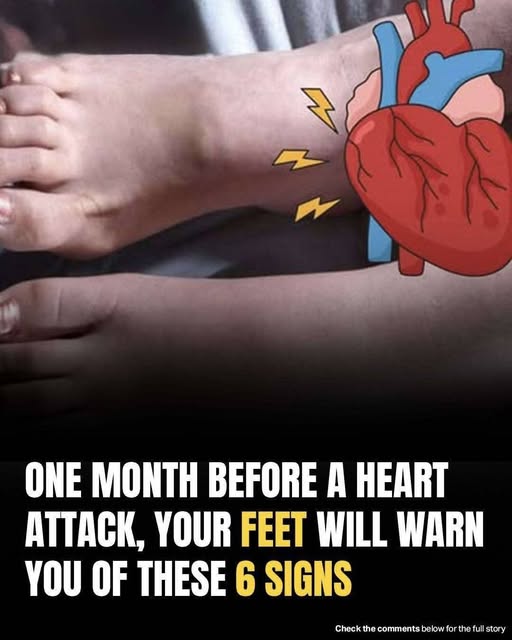
Heart Attack Warning Signs You Should Never Ignore
Heart disease remains one of the deadliest conditions worldwide. According to the World Health Organization, ischaemic heart disease—commonly caused by narrowed arteries restricting blood flow to the heart—was responsible for 8.9 million deaths in 2019, making it the leading cause of death globally.
What’s alarming is that many heart attacks are preceded by early warning signs, often days or even months in advance. These are known as prodromal symptoms, and recognizing them can make the difference between life and death.
A study published by the National Library of Medicine found that these early signs are frequently ignored—not just by patients but also by healthcare professionals. Because they can be vague or mistaken for less serious conditions, these symptoms are too often brushed aside. Below are the most frequently reported early indicators of a possible heart attack, each with further context to help you understand their importance.
1. Fatigue
Experiencing persistent or unusual fatigue—even when you’re well-rested and haven’t exerted yourself—can be a serious warning sign. This kind of tiredness isn’t relieved by sleep or rest. It can feel like you’re dragging through the day or suddenly wiped out after simple tasks like climbing stairs or grocery shopping. It may indicate that your heart is struggling to pump blood efficiently, especially if the arteries are narrowed and the heart is working harder than usual.
2. Shortness of Breath
If you find yourself struggling to breathe during light activity or even at rest, take it seriously. This can happen when the heart doesn’t pump blood efficiently, leading to fluid build-up in the lungs and making it difficult to breathe. People often describe this symptom as a feeling of suffocation or tightness in the chest. It’s especially concerning if it occurs suddenly or worsens over time and may signal heart failure or an impending heart attack.
3. Unexplained Weakness
Sudden, generalized weakness or heaviness in the limbs can occur when blood flow to muscles and vital organs is reduced. You may feel like your legs can’t support you, or that everyday tasks—like holding a cup of coffee—suddenly feel harder. This weakness might come and go, but if it feels unusual or is accompanied by other symptoms, do not ignore it.
4. Dizziness & Cold Sweats
Feeling faint, lightheaded, or dizzy, especially when standing up or turning your head, may be a sign of inadequate blood flow to the brain. Cold sweats, especially when accompanied by other symptoms like nausea or chest pain, are also red flags. If you’re breaking into a sweat for no apparent reason, it’s worth getting evaluated. These symptoms can signal that the heart is under distress and may precede a major cardiac event.
5. Flu-like Symptoms
Surprisingly, some people experience symptoms that mimic the flu before a heart attack. This includes body aches, fatigue, and even mild chest discomfort. Because these symptoms are common during cold and flu season, they’re often dismissed. However, if you feel “off” or unlike yourself, especially if you’re at risk for heart disease, don’t take it lightly.
6. Chest Pressure or Discomfort
Perhaps the most well-known warning sign, chest discomfort often manifests as tightness, pressure, heaviness, or squeezing—not necessarily sharp pain. This sensation may spread to the arms, neck, jaw, or back. Some describe it as feeling like an elephant is sitting on their chest. It may come and go, or linger for several minutes. If this occurs, seek emergency medical help immediately.
7. Swollen Feet, Ankles, or Legs
Edema (swelling) in the lower extremities can indicate that your heart isn’t pumping efficiently, causing fluid to accumulate. This swelling may worsen by the end of the day or after long periods of standing. It’s especially concerning if accompanied by weight gain, shortness of breath, or nighttime urination—all signs of congestive heart failure, which can precede or accompany a heart attack.
The Bottom Line: Act Early, Act Fast
If you or someone close to you experiences any combination of these symptoms, do not delay. Even if the signs seem subtle or come and go, it’s crucial to consult a healthcare provider or visit the emergency room. Heart attacks can be silent—but the body often whispers its warnings before it screams.
Remember, early recognition, fast action, and proper medical care can prevent a full-blown cardiac event or minimize the damage it causes.
Disclaimer: This content is for informational purposes only. Always seek professional medical advice for diagnosis or treatment. If you’re experiencing severe chest pain, shortness of breath, or fainting, call emergency services immediately.